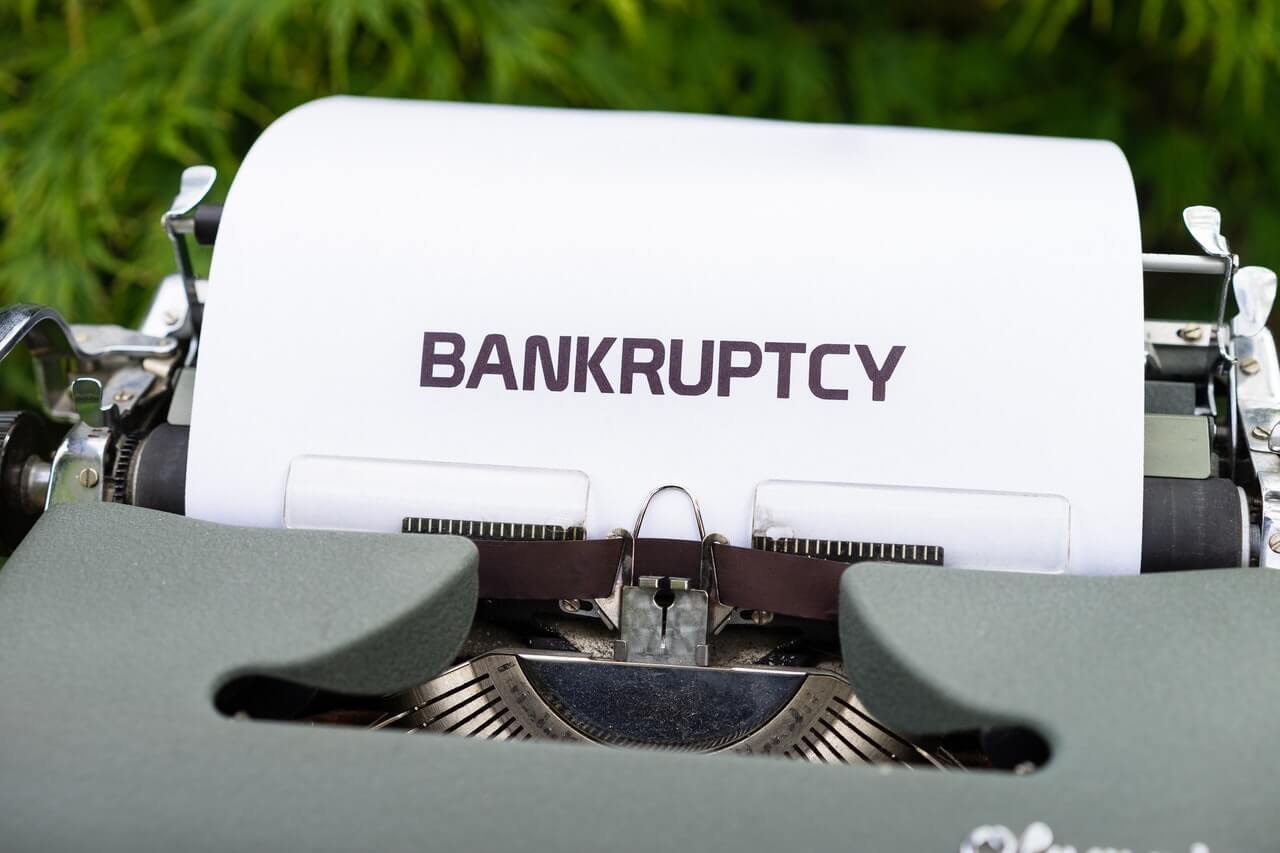Bankruptcy is another financial topic that no one wants to think about. But they are something that a wide range of people will need to consider this year.
Bankruptcies were going down during the Covid-19 pandemic from 2020 through 2021. However, bankruptcy has been increasing again throughout 2022. As early as April, it was reported that bankruptcy filings were up 33.5% from February to March.
The fall in bankruptcies after the pandemic hit followed the government aid programs. Now, individuals and businesses alike are flocking to debt relief measures, including bankruptcy.
If this picture generally describes your situation, it pays to at least understand how it works. In this article, we will go over:
- What it means to declare bankruptcy
- What you lose when you declare bankruptcy
- The most common types of bankruptcy to declare and how they work
What does it mean to declare bankruptcy?
It is not what games like Monopoly suggest; it doesn’t mean you’ve simply run out of money.
Bankruptcy is a legal process during which you present yourself before a judge and formally report that you are completely unable to pay your debts.
Depending on the specifics of the situation, several things can happen. One common and often preferred (by the judge and your debtors) course of action is to make a new plan for you to pay them back. In other cases, your debts will be entirely erased, with several other serious consequences for you.
Bankruptcy normally follows a financially destructive series of events. Job loss, divorce, medical emergencies, and other issues can lead one to consider it
When it can be avoided, it certainly should, and other alternatives to bankruptcy should be considered. That’s because the consequences are very serious for your long-term financial stability.
Is Debt Consolidation Right For You?
What do you lose when you declare bankruptcy?
When you declare bankruptcy, all your debts are erased. However, the declaration remains on your credit report for 7 to 10 years from the date of filing. The exact time depends on which chapter you declare under.
It affects more than just your finances. A declaration of bankruptcy will have several effects, including:
- It will become extremely difficult to get any form of credit
- The above prevents you from buying a home, borrowing for a car, and much more
- You may find it far more difficult to get a job
- You will probably not be able to gain financing to start a business
- Landlords will be very cautious when considering signing a lease with you
- Student loan debts will not be erased
- Government debts such as taxes, fines, penalties, are not erased
Bankruptcy only treats symptoms, not your actual problems. In most cases, it is less of a fresh start, and much more simply financial shock therapy. Of course, if the last two forms of debt on the list are what you’re struggling with, declaring bankruptcy will do very little good for you.
What is the difference between Chapters 7, 11 and 13?
These are the 3 main types of bankruptcy.
Chapter 7
Chapter 7 (liquidation) is the most commonly declared type of bankruptcy, calling for the debtor’s assets (your assets) to be sold off in order to pay back your creditors.
However, in almost all cases, at least some of the debtor’s debts are discharged.
Both individuals and businesses can file Chapter 7 Bankruptcy. It is the simplest and fastest option available, normally taking just a few months from filing to resolution.
What makes Chapter 7 so simple is the lack of a repayment plan. You don’t go through an extended repayment process, though you will end up losing at least some of your assets.
During Chapter 7, some of your assets are protected from liquidation. However, the exact exemptions vary at the State level. Protected assets normally include some mix of:
- Vehicles
- Clothing
- Furniture
- Pension funds
- Home equity
When looked at on a case-by-case basis, most of the debtor’s assets are protected. These are called “no-asset cases”, and they make up the majority of Chapter 7 Bankruptcies.
Chapter 13
Chapter 13 Bankruptcy is also known as a “wage earner’s plan”.
It is a class of bankruptcy where the debtor has more assets protected, but at the cost of having a longer-term repayment schedule.
The most significant protection offered is that Chapter 13 Bankruptcy protects your home from foreclosure. It also buys homeowners time to catch up on missed payments. When it comes to other debts, they are normally reconstructed so that you have more time to pay them off.
As with Chapter 7, your creditors must stop trying to collect your debts to them. Instead, you make payments to a trustee, who then pays your former creditors according to the new schedule. Debtors do not have any communication or other connection to their creditors.
Unlike Chapter 7, Chapter 13 requires your debts must still be repaid. It usually lasts several years longer than even the longest Chapter 7 Bankruptcy.
Chapter 11
Chapter 11 Bankruptcy is also known as “reorganizing bankruptcy”.
It is a type of bankruptcy often used by partnerships and corporations. But individuals in business, such as sole proprietors, can still make use of it.
The aim of Chapter 11 is to keep a business operational while its debt is restructured. The business will continue paying its creditors, buying the business time while providing relief to creditors who would otherwise face no possibility of being repaid.
The downside of Chapter 11 Bankruptcy is that it is a long, complex process. Court and lawyers’ fees are typically much higher as well. In addition, it could take years to reach a conclusion.
Unlike Chapter 13, debtors do not normally work with trustees. The filer simply becomes the trustee through their role in the process, which is referred to as “debtor in possession”. The debtor thus continues operating their business while negotiating a repayment plan with their creditors.
Conclusions
Bankruptcy is never the perfect solution, but it can be the right last resort when all alternatives have been exhausted.
While bankruptcy should be avoided, it’s important that you understand your options when facing extreme financial hardship.


















